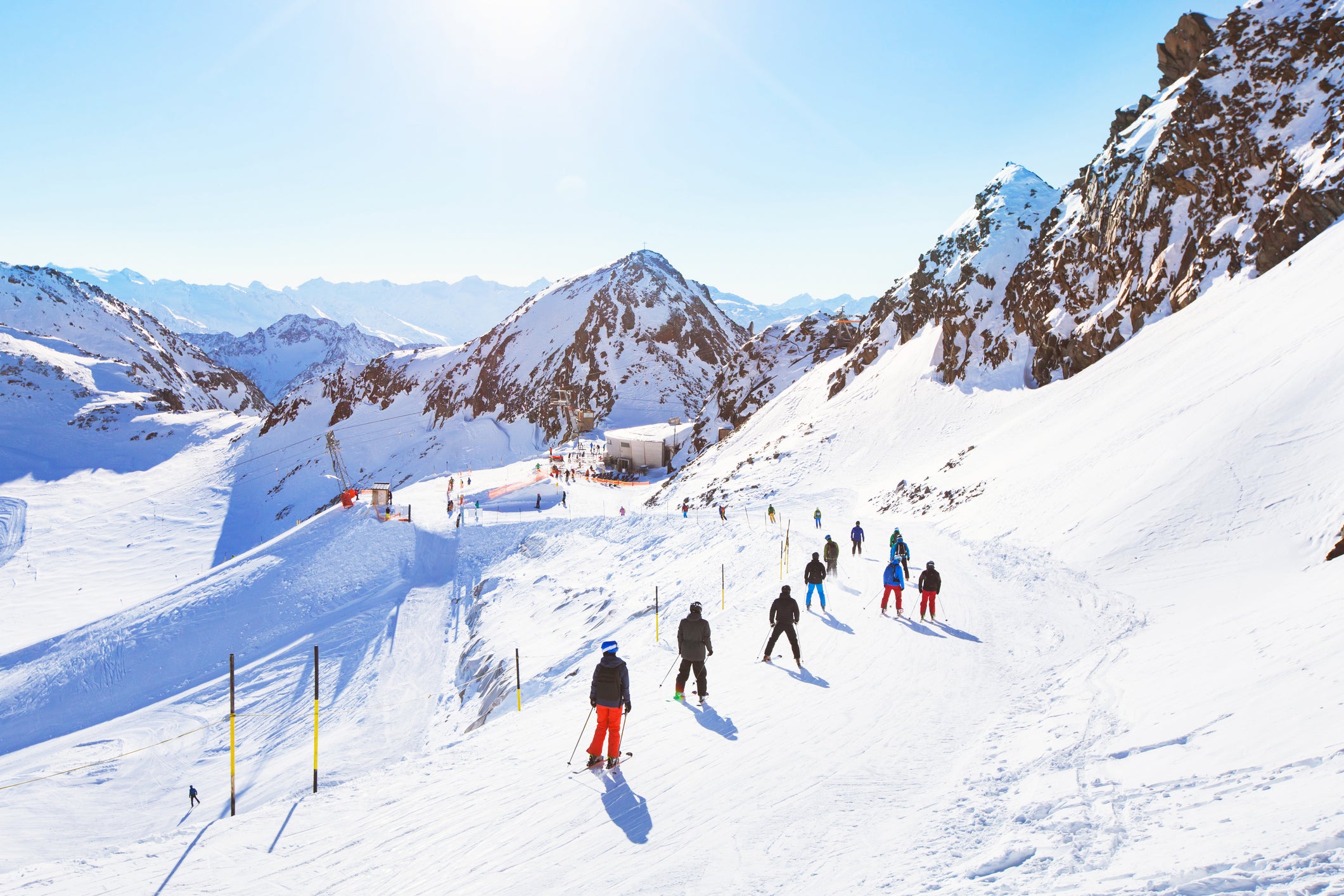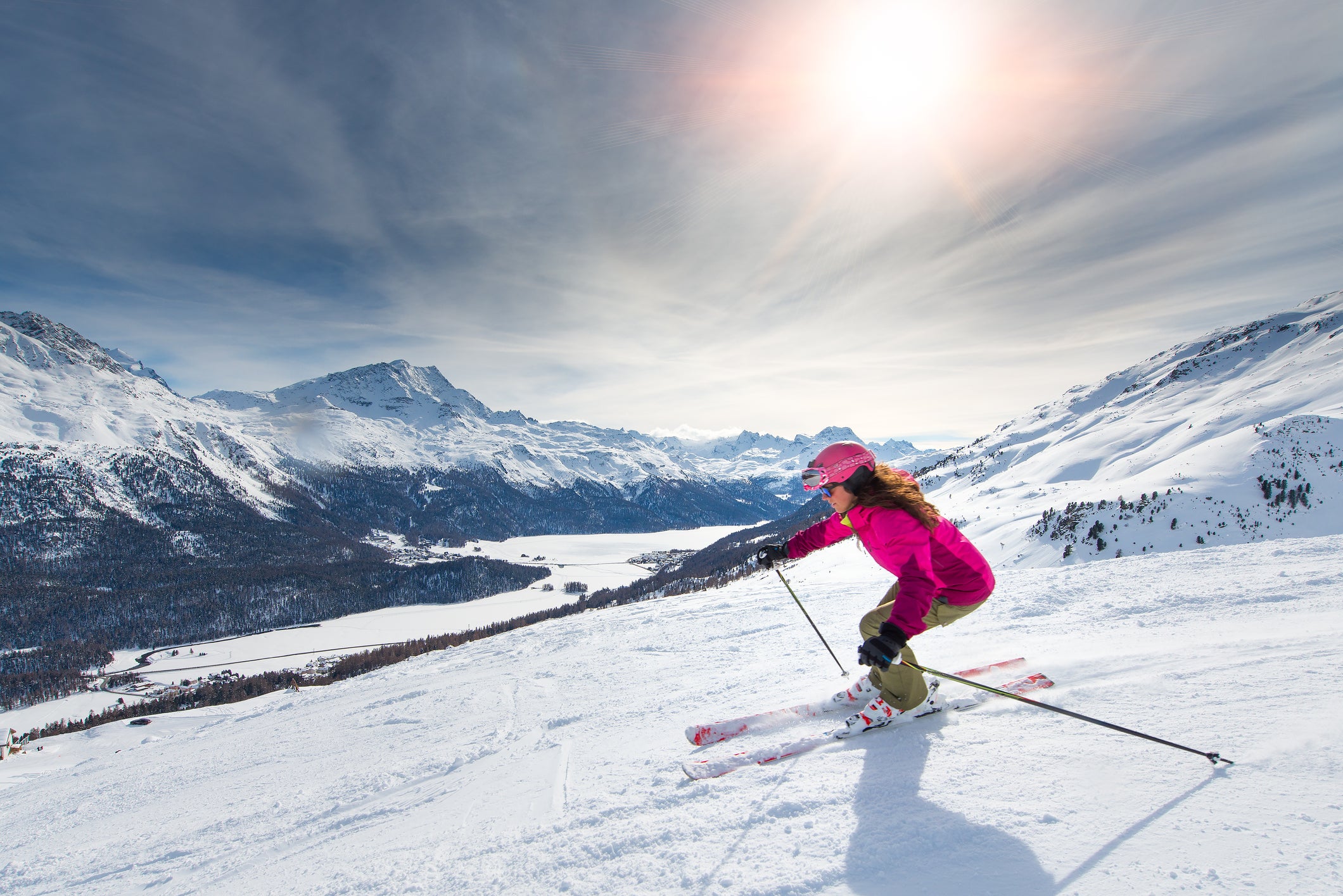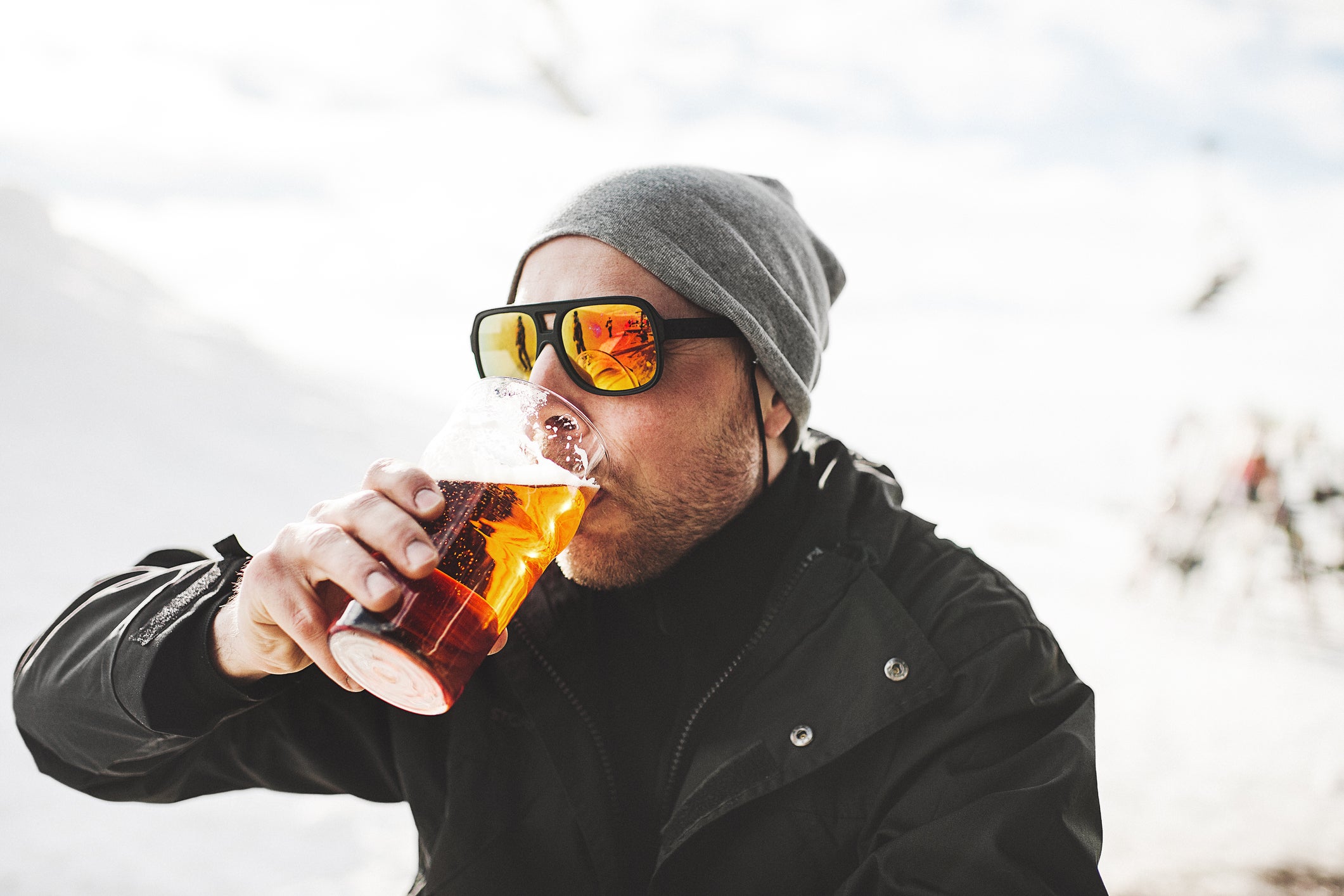
Gwyneth Paltrow, US actor and head honcho of “wellness brand” Goop, is currently embroiled in a legal case after being accused of injuring a man by colliding with him in a “hit-and-run ski crash” seven years ago.
The incident took place at the high-end resort of Deer Valley in Utah on 26 February 2016.
Retired optometrist Terry Sanderson, 76, is suing the Oscar-winning actor for $300,000 (£244,000) after he claims she skied downhill into him in an “out of control manner”.
According to the complainant, the 50-year-old struck him with such force he was left with “permanent traumatic brain injury, four broken ribs, pain, suffering, loss of enjoyment of life, emotional distress and disfigurement”.
Read more on ski holidays:
In his complaint, Mr Sanderson argues that Paltrow “got up, turned and skied away”, leaving him “stunned, lying in the snow, seriously injured” without summoning help.
The star has called the lawsuit “a meritless claim” and “an attempt to exploit her celebrity and wealth”, insisting she “remembers what happened very clearly”.
Ms Paltrow is counter-suing him for a symbolic $1 (£0.80) should she win and for her legal expenses to be covered.
But what does this mean for more humble folks who find themselves in trouble on the slopes? We’ve consulted the experts to find out everything you need to know about your legal rights in the mountains.
Who has the right of way on a ski slope?

According to ski litigation specialist Mark Lee, partner and head of the travel law team at Penningtons Manches Cooper, the rules of conduct for skiers in Utah are broadly similar to those stated in the International Ski Federation (FIS), the governing body for skiing and snowboarding.
“In Utah, as in Europe, skiers are expected to exercise reasonable care when skiing,” he says.
“The FIS rules specifically require skiers to act in a way that does not endanger or prejudice others, adapting their speed and manner of skiing to their personal ability, factoring in terrain, weather conditions and density of traffic.
“The Utah Park City Municipal Code places primary duty on the uphill skier ‘to avoid collision with any person or object below him’. This mirrors the FIS approach, which expects skiers up-slope to choose their route so as not to endanger others down-slope.”
Is there a limit to how fast you can go?

While there isn’t an official definition of how fast you’re allowed to go, FIS rules and common sense mean that skiers are expected to adapt their speed based on terrain, weather conditions and density of traffic. For this reason, if the run is rammed, it makes sense to slow down or move to a more advanced run befitting your experience.
“In terms of speed, this depends on your experience but you should ensure you are skiing on a slope that is suitable to your level and will have other skiers at the same level,” Onyinye Ebizie, travel solicitor at Slater and Gordon, tells The Independent.
“Naturally, you have to be mindful of those around you so skiing at high speed, where it is easier to lose control, is risky and may result in an accident. Skiing is, however, an adrenaline sport so many resorts cater for those who are experienced and want to travel at speed.”
I’ve crashed into someone. Could I be at risk of legal action?
It’s possible. “Look at the Ski Federation Regulations as the Highway Code for skiers,” says Mr Lee.
“If an injured party can prove that a skier breached the rules – and that the breach was the cause of the accident – he/she can then recover damages against the negligent skier/their insurer.
“Similarly, in Utah, if the injured party can show that the other skier failed to exercise reasonable care – and that failure was the cause of the accident – then again damages can be recovered against the negligent skier.”
He continues: “In the Paltrow case, it is alleged her guide did not provide assistance to the injured skier.”
“Under the FIS rules, this is considered a cardinal sin, with every skier ‘duty bound to assist’. In some EU jurisdictions, failure to do so may even result in a criminal offence,” he adds.
What about alcohol on the slopes?
With après-ski an integral part of the skiing experience, there’s no ruling out the possibility of inebriated skiers taking to the slopes. But what does this mean for a person’s travel insurance?
“The majority of travel insurance policies exclude cover for events that happen after excessive alcohol consumption – but that doesn’t mean holidaymakers will only be covered if they don’t drink at all,” says Mr Lee.

“In some cases the terms describing alcohol consumption may not be clearly defined in the policy and policyholders may successfully challenge these provisions if there is any ambiguity.
“All cases are fact specific with supporting evidence all important – particularly independent witness evidence regarding the amount of alcohol consumed and, where possible, medical evidence of blood alcohol levels.
“The onus is on an insurer to prove that the alcohol exclusion should apply to the circumstances of an individual case and the standard of proof is high.”
He adds that it’s “generally accepted by the Ombudsman that holidaymakers are going to enjoy a few drinks – they are on holiday after all – so cover will only be excluded if there is clear evidence the policyholder was highly inebriated at the time of the incident, such that the insurer cannot be expected to foot the bill.”
Martyn Gwyther, head of Thompsons Solicitors’ cross-border claims department, says: “In the cases we have run for injured skiers, common sense seems to have disappeared into the mountain air.
“The rules that exist in every resort expect reasonable behaviour, such as giving way and ensuring you remain in control at all times.
“Everyone knows that consumption of alcohol affects judgement so when we are acting for someone injured on ski slopes, we will always ask the person who caused harm whether they have been drinking.”
TL;DR? Take it steady on the slopes, stop and assist in the event of a collision – and maybe save the boozing for after the boots come off.







